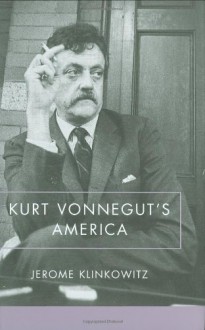Kurt Vonnegut’s death on April 11, 2007, marked the passing of a major force in American life and letters. Jerome Klinkowitz, one of the earliest and most prolific authorities on Vonnegut, examines the long dialogue between the author and American culture—a conversation that produced fourteen...
show more
Kurt Vonnegut’s death on April 11, 2007, marked the passing of a major force in American life and letters. Jerome Klinkowitz, one of the earliest and most prolific authorities on Vonnegut, examines the long dialogue between the author and American culture—a conversation that produced fourteen novels and hundreds of short stories and essays. Spanning Vonnegut’s half-century literary career, Kurt Vonnegut’s America integrates discussion of myriad fiction, essays, and lectures with personal exchanges and biographical sketches to map the complex symbiotic relationship between Vonnegut’s work and the cultural context from which it emerged—and which it in turn helped shape. Following an introduction characterizing Vonnegut as Klinkowitz came to know him over the course of their friendship, this study traces Vonnegut’s career, decade by decade, drawing connections between the nation’s preoccupations, the author’s biography, and his literary productions. Vonnegut’s 1950s saw him starting out as a short story writer, using his training in anthropology and experience in journalism and public relations to offer comic insights on middle-class behaviors. In the 1960s the author produced a series of darkly humorous novels rooted in the sense of apocalypse he’d experienced as a prisoner of war during the destruction of Dresden, Germany. Vonnegut’s rising fame made him a public figure by 1970, with his novels and increasingly prominent essays serving as commentaries on the trends and patterns of these changing times. By the 1980s Vonnegut was sufficiently comfortable with his celebrity status to offer broader perspectives in his work, including his take on human evolution and artistic development. The 1990s found Vonnegut writing the strongest fiction and commentary of his career, melding them into a masterpiece, Timequake, the virtual autobiography of a novel. Among his artistic peers, Vonnegut was uniquely gifted at anticipating and articulating the changing course of American culture. Far from being A Man without a Country, as his last book was titled, Vonnegut achieved greatness by passing his own test—opening the eyes of his audience to help them better understand their roles and possibilities in the common culture they both shared and crafted.
show less

